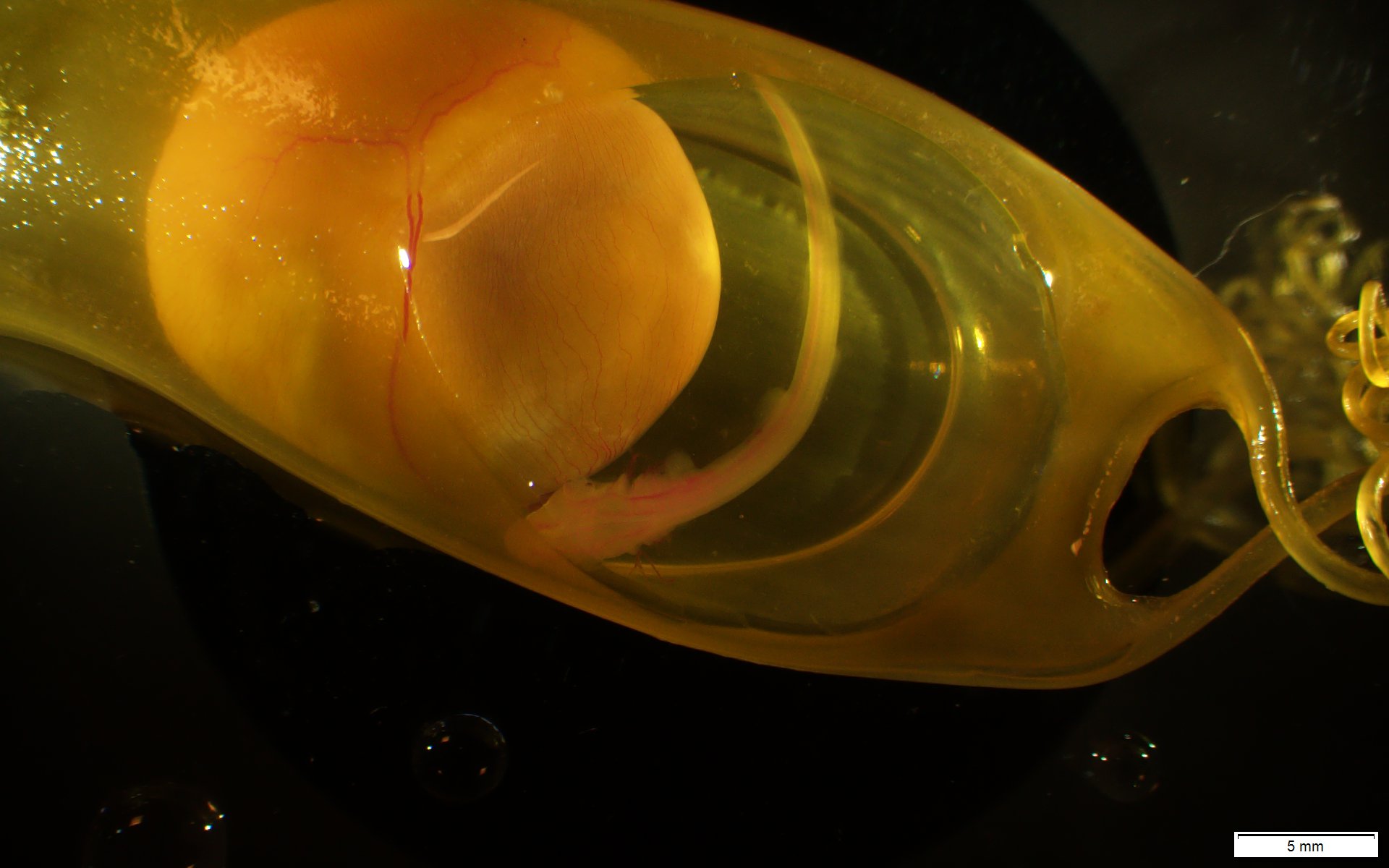Thesis offer in biology at the University of Caen-Normandy 2021-2024
Sex determination in the small-spotted dogfish, Scyliorhinus canicula
Sex determination corresponds to all mechanisms leading to the commitment of an undifferentiated gonad in a male or female differentiation. It depends of genetic factors (XX/XY, ZZ/ZW, autosomes, …) and/or environmental factors (temperature, light, …) depending on the species. In vertebrates, this diversity of modes of sex determination exists. The molecular actors involved are generally conserved during evolution (amh, dmrt1, foxl2…) but they are sometimes specific to some species, such as the major sex determinant in trout, sdY, derived from an ancestral gene of the immune response1. So, study of the molecular cascade of sex determination in a species representative of primitive vertebrates is of great interest from an evolutionary point of view.
The small-spotted dogfish, S. canicula, is emerging as a model of choice due to its local abundance, its easy breeding and easy access to embryos. In addition, we have access to transcriptomes and to its genome, which has already allowed the molecular characterization of germinal stem cells in this species 2,3,4. In Elasmobranchs (rays and sharks), the establishment of the gonadal anlage and its differentiation into ovary or testes remains a poorly documented subject. Only elements of histological description are available in the lesser spotted dogfish 5,6 and in a ray 7, data which have been completed in the laboratory. Finally, a study carried out in collaboration with Dr Guiguen (INRAE) allowed to identify its mode of sex determination and to establish a genetic test allowing the sexing of early embryos 8.
The objectives of this thesis project are 1) to determine the temporal window of sex determination by characterizing the expression of candidate factors in the embryonic gonads (classical sex-determining actors 9) by RT-PCR, in situ hybridization and immunofluorescence, 2) to identify new sex-linked genes using RAD-seq data comparing male with female genomes, 3) to rank the candidates within this sex determination gene network using ChIP-seq and finally 4) to assess the ability of the somatic niche of the embryonic gonad to influence germ cell gender by transplanting adult germinal stem cells into the embryo.
The thesis will take place in Caen, in BOREA laboratory, Biology of Aquatic Organisms and Ecosystems, a multidisciplinary research unit (physiology, ecology…) affiliated to UCN, MNHN, CNRS, IRD, SU and UA. The PhD student will develop a professional network by interacting with technical platforms of the SF ICORE (CMAbio3, PROTEOGEN and SESAME), the rearing facilities of the marine station in Luc-sur-mer (CREC) and the aquarium of the Cité de la Mer in Cherbourg, as well as with researchers with whom we are setting up a project of comparative analyses of the sex-determination systems within Elasmobranchs. This innovative and technologically ambitious work on this model will provide results of high interest on sex determination and its evolution in vertebrates, as well as tracks for the preservation of threatened species.
References : 1 Yano A et al. (2012) Current Biology, 2 Bosseboeuf A et al. (2014) Reproduction, 3 Gautier A et al. (2014) Biol. Reprod, 4 Gribouval L et al. (2018) Sci Rep, 5 Chieffi G. (1959) Arch. Anat. micr. Morph. Exp, 6 Thiebold J. (1964) Thèse. Université de Strasbourg, 7 Poulakis GR & Grier HJ. (2014) Environ Biol Fish, 8 Lavaut E. (2018) Mémoire de stage de master 2, 9 Santerre C et al. (2014) Comp Biochem Physiol A Mol Integr Physiol.
The candidate should have a strong background in molecular and cellular biology. Good academic results are required. Knowledge in the fields of reproduction and/or development will be appreciated. Furthermore, the candidate must have a level of English that allows him/her to write publications and present at conferences. Motivation is expected!
Closing date for application: Monday 10 May 2021
If you are interested, please send by email a CV, an application letter as well as your academic marks of L3, M1 and 1st semester of M2 to the two thesis supervisors.
Dr Aude Gautier, aude.gautier@unicaen.fr et Dr Anne-Sophie Martinez, anne-sophie.martinez@unicaen.fr




